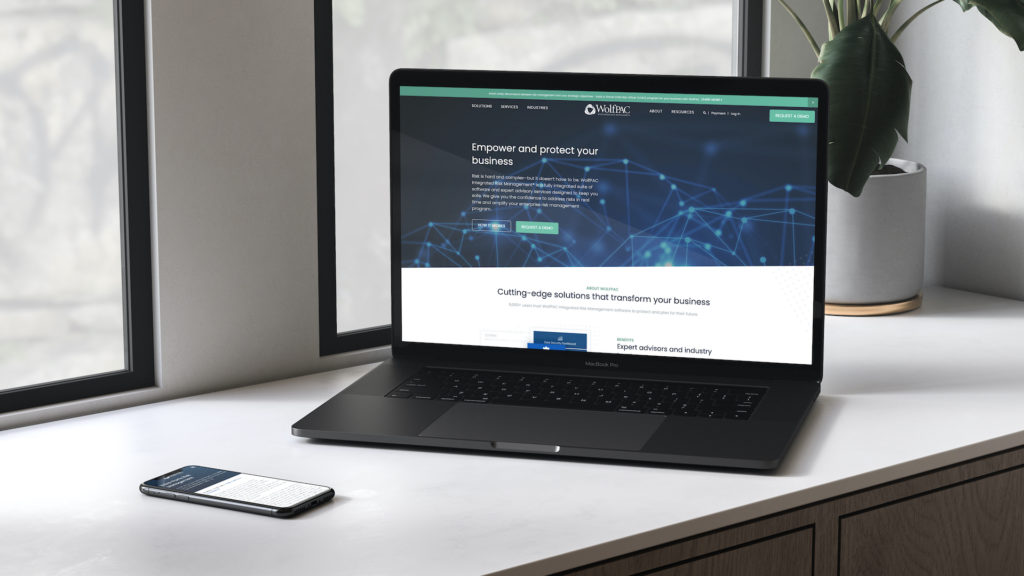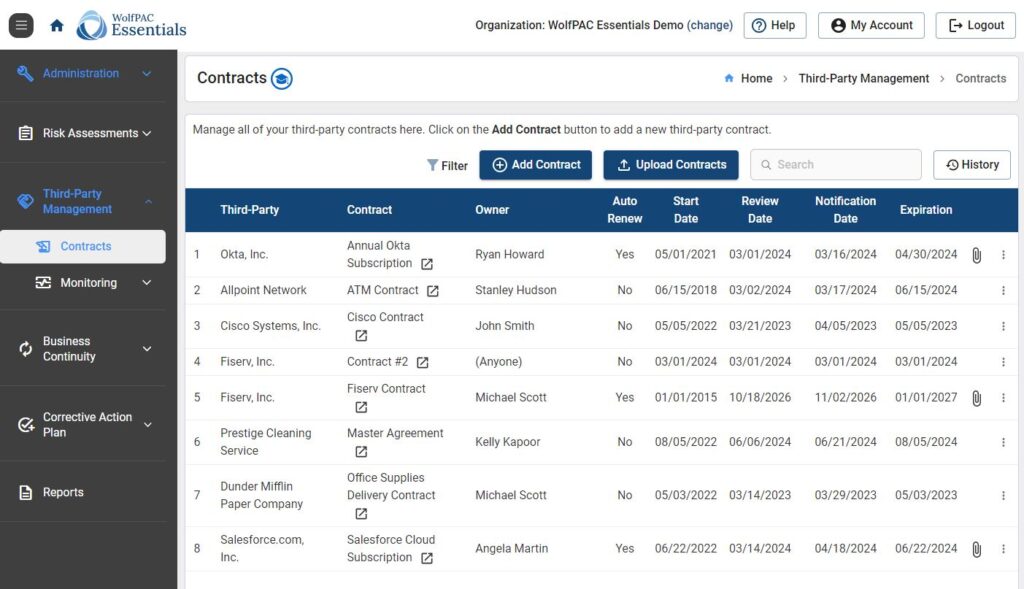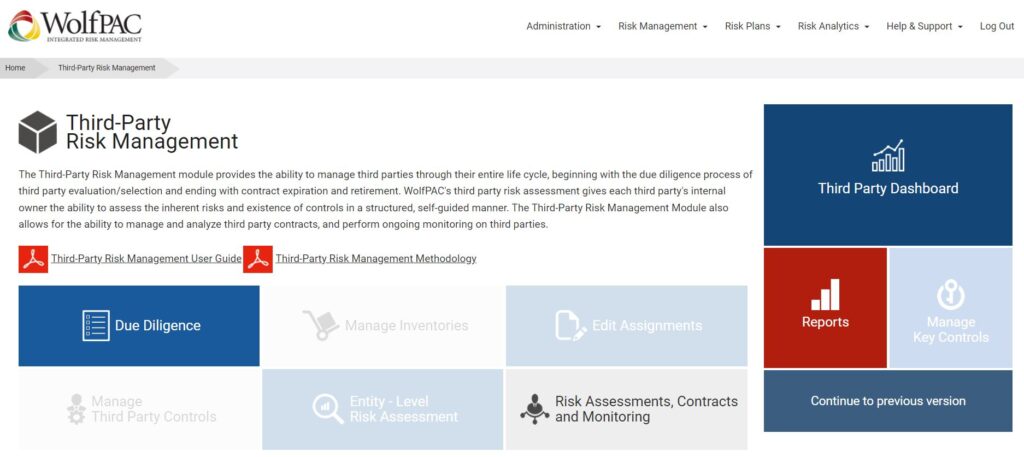The Anatomy of a Great Vendor Management System
Are your vendor relationships as efficient and streamlined as they could be? Are you leveraging every opportunity to reduce risk and ensure compliance? If the answer to one, or both, of these questions is “no”, a solid vendor management system could be the answer to your problem.
This blog post is a deep dive into the anatomy of a great vendor management system, a vital tool that businesses use to manage their supplier relationships and mitigate risks.
Short Summary
- Vendor Management Systems (VMS) are essential tools for optimizing vendor data, streamlining processes, and managing risks.
- Researching the best VMS solutions, considering factors such as price, features, and integrations, is key to finding this best fit.
- Automation & AI can help businesses make informed decisions while minimizing manual effort and enhancing the accuracy of operations.
Understanding Vendor Management Systems

Vendor Management Systems (VMS) are more than just a trend; they’re quickly becoming a business imperative. A VMS acts as a compass, guiding organizations through the intricacies of managing supplier relationships. It’s an essential tool that facilitates the optimization of vendor data, streamlines business processes, and enhances vendor risk management.
These systems have evolved into robust platforms that handle everything from vendor performance management, vendor lifecycle management, to contract management, and compliance management features. A VMS is all about optimizing vendor relationships, and the best vendor management software makes this process seamless, efficient, and profitable.
But how exactly do these systems work? At the core, they centralize all of your vendor information, making it easily accessible and manageable. They monitor vendor performance and manage contracts, ensuring that suppliers meet their obligations. Plus, they facilitate vendor communication, keeping all parties aligned and working towards the same goals. In essence, a VMS turns the complex chore of managing suppliers and other third parties into a streamlined, manageable process.
Key Components of Effective Vendor Management Software
Advanced Dashboards
All vendor management systems are not created equal. The best vendor management software solutions contain several key components that set them apart. First, they offer a centralized dashboard, a control tower from which businesses can monitor and manage all vendor relationships. These dashboards provide real-time insights, advanced analytics, and data capture from ERP solutions.
Contract Analysis
An integral aspect of a comprehensive vendor management system, such as WolfPAC, is its emphasis on contract analysis, due diligence, and continuous monitoring. While direct contract creation may not be within its feature set, WolfPAC excels in assessing the risks associated with existing vendor contracts. This involves thorough due diligence to ensure that all contractual agreements are in line with regulatory standards and organizational policies.
WolfPAC’s approach to vendor management prioritizes the analysis and mitigation of risks, enabling businesses to scrutinize and understand the implications of their vendor contracts. The system facilitates ongoing monitoring of vendor performance and compliance, ensuring that any potential issues are identified and addressed proactively.
By focusing on contract analysis, due diligence, and monitoring, WolfPAC provides organizations with the tools necessary to manage vendor relationships effectively. This ensures not only compliance and alignment with the organization’s risk parameters but also fosters a robust framework for vendor risk management.
Supplier Support
The best vendor management systems offer supplier support. They provide direct lines of communication with vendors, accessible from anywhere within the platform, ensuring smooth vendor communication. This key feature helps businesses manage vendor relationships effectively, ensuring that suppliers deliver the right products, orders are not postponed, and misunderstandings are avoided.
Built for Highly-Regulated Industries
When evaluating a vendor management system, it’s essential to prioritize its ability to effectively manage and mitigate risks. Systems like WolfPAC, which specialize in risk assessment and management, are particularly valuable in sectors where regulatory compliance is a concern.
While the integration of a vendor management system with operational tools such as Quickbooks, Xero, or Slack can enhance operational efficiency, the primary consideration should be the system’s risk management capabilities. WolfPAC’s strength lies in its comprehensive approach to risk evaluation, focusing on identifying, analyzing, and mitigating various risks associated with vendors. This focus on risk management is crucial for cost savings, improved compliance, and overall organizational resilience. Selecting a system that excels in these areas ensures a more robust and focused approach to vendor management, especially in highly regulated industries.
Evaluating the Top Vendor Management Solutions
 Selecting the ideal vendor management system is a crucial decision that will vary based on your unique business needs, industry focus, and organizational size. There are several high-quality solutions in the market, each offering distinct features and benefits. The best choice for your organization will depend on specific requirements such as user-friendliness, comprehensive features, and scalability.
Selecting the ideal vendor management system is a crucial decision that will vary based on your unique business needs, industry focus, and organizational size. There are several high-quality solutions in the market, each offering distinct features and benefits. The best choice for your organization will depend on specific requirements such as user-friendliness, comprehensive features, and scalability.
For larger organizations, solutions that offer cloud-based platforms and integrate with numerous third-party systems can be particularly beneficial. That being said, when evaluating any vendor management system, it’s essential to consider all aspects, including system performance, customer support, price, features, ease of onboarding, and integration capabilities.
The objective should be to find a system that not just manages vendor relationships but transforms them into strategic partnerships, enhancing overall business efficiency and compliance. In this regard, while tools like SAP Fieldglass, Gatekeeper, and others may offer specific advantages, it’s crucial to conduct thorough research and consider a range of options, including how well they align with your risk management strategies and goals.
Key Features & Functionality to Look Out For
In-App Chat
Many vendor management systems offer an in-app chat feature, providing a direct line of communication with vendors accessible from anywhere within the platform. This feature turns sporadic email threads and disjointed phone calls into a streamlined, trackable conversation, ensuring clear and consistent vendor communication.
Data Repositories
Centralized repositories for contracts and renewal dates are critical features in vendor management software. This functionality provides easy access to important documents, facilitating more effective collaboration. Such capabilities are crucial not only for enhancing vendor performance but also for mitigating risks associated with vendor relationships.
Real-Time Insights
Effective vendor management systems often provide real-time insights that help improve vendor collaboration and health. These insights can make vendor communication more productive and efficient, leading to better overall performance and risk management. By focusing on systems that offer this type of functionality, organizations can ensure they are equipped to handle the complexities of vendor relationships and are well-positioned to respond to changes and challenges in their vendor networks.
Enhancing Risk Management and Compliance
Risk and compliance are critical considerations for business owners, and these challenges can be effectively managed with a robust vendor management system. Such systems offer comprehensive risk management features, enabling businesses to monitor compliance and swiftly identify and rectify any issues.
Modern vendor management solutions often incorporate advanced technologies like AI and automation to streamline risk management processes. These technologies aid in maintaining regulatory compliance and fostering healthy vendor relationships by providing real-time insights, automating risk assessments, and ensuring policies and procedures are consistently applied.
By utilizing a vendor management system with these capabilities, businesses can stay ahead of regulatory requirements and manage vendor relationships more effectively. This not only reduces compliance risk but also contributes to a more efficient and secure operational environment. In a business world fraught with uncertainty, a vendor management system serves as a trusted ally, helping businesses navigate the landscape of risk and compliance. By keeping a close eye on vendor performance, these systems ensure that businesses stay one step ahead, mitigating risks before they become problems.
Optimizing Vendor Lifecycle Management
From acquisition to evaluation and onboarding, managing the vendor lifecycle is a complex process. But with a great vendor management system, this process becomes seamless. These systems manage the entire vendor lifecycle, aiding in the selection and management of preferred vendors, issuing customized vendor risk assessments, and controlling access by group, user, or role.
An effective vendor management system is crucial for streamlining the entire vendor lifecycle, encompassing aspects such as procurement and standardized onboarding. These systems enable organizations to conduct customized vendor risk assessments and provide tailored access control based on group, user, or role. This comprehensive approach ensures that vendors align with the organization’s needs throughout every stage of their lifecycle.
Integrating Vendor Management Software with Existing Business Processes
Effective integration is crucial for maximizing the benefits of vendor management software. By seamlessly incorporating these systems into existing business processes and tools, organizations can significantly boost operational efficiency. Vendor management solutions that offer versatile integration capabilities, including both automatic and manual options, can synchronize with various platforms like accounting software and enterprise resource planning systems.
Integrating a robust vendor management system within an organization’s existing framework can help streamline operations, reduce manual efforts, and improve data accuracy. This seamless integration is key to efficiently managing vendor data, enhancing vendor relationships, and ultimately driving business growth. The right vendor management software, when integrated effectively, becomes a powerful tool in optimizing vendor interactions and contributing to overall organizational success.
Choosing the Right Vendor Management System for Your Business

Choosing the right vendor management system is a strategic decision that can significantly impact your business operations. From due diligence and monitoring to contract analysis, various factors come into play. Understanding these factors and aligning them with your business needs is essential to make an informed decision.
Effective Vendor Due Diligence
Effective vendor due diligence is a critical first step in selecting the right suppliers and mitigating risks. This process involves comprehensively evaluating a prospective vendor’s economic soundness, credibility, adherence to legal and regulatory requirements, and capacity to fulfill the organization’s requirements. By conducting thorough vendor due diligence, businesses can minimize risks and ensure a seamless vendor relationship.
Vendor Monitoring
Vendor monitoring involves regularly evaluating a vendor’s performance to guarantee they are achieving the predetermined standards and requirements. This ongoing assessment provides businesses visibility into supplier performance on critical metrics, enabling them to identify areas of improvement and take necessary corrective action. Vendor monitoring is an essential component of a robust vendor management system, which can be greatly enhanced by utilizing vendor management tools, such as a vendor management platform for effective vendor relationship management.
Vendor Contract Analysis
Vendor contract analysis is another crucial aspect of choosing the right vendor management system. Reviewing and assessing a vendor’s contract ensures that it fulfills your organization’s requirements and expectations. It includes examining the range of services, performance criteria, duration, default and termination clauses, as well as costs and price increase language. Vendor contract analysis is essential for guaranteeing compliance with contractual commitments and managing financial and operational performance.
The Future of Vendor Management: Automation and AI
The future of vendor management is bright, with automation and AI leading the way. These technologies can significantly enhance vendor management processes, enabling more informed decision-making and cost reduction. AI can also be used to analyze data and identify trends, making vendor management systems smarter and more efficient.
For instance, automating recruitment through vendor management software can decrease risks, facilitate data-driven decisions, bolster supplier relationships, and generate cost efficiencies. Furthermore, AI can assist in managing vendor relationships, cost reduction, risk mitigation, and automating data analysis and talent management processes. As we move forward, the power of AI and automation will continue to shape the vendor management landscape, turning complex processes into streamlined operations. The future of vendor management is here, and it’s automated, intelligent, and incredibly efficient.
Summary
In the complex world of vendor relationships, vendor management systems are the compass that guides businesses. These systems streamline vendor communication, enhance risk management, optimize the vendor lifecycle, and integrate seamlessly with existing business processes. As we look to the future, the possibilities for automation and AI in vendor management are vast and exciting.
In conclusion, a robust vendor management system can transform your vendor relationships into strategic partnerships that propel your organization forward. It’s not just about managing vendors; it’s about leveraging every opportunity to reduce risk, ensure compliance, and drive business growth. The future of vendor management is here, and it’s time for businesses to embrace it.
